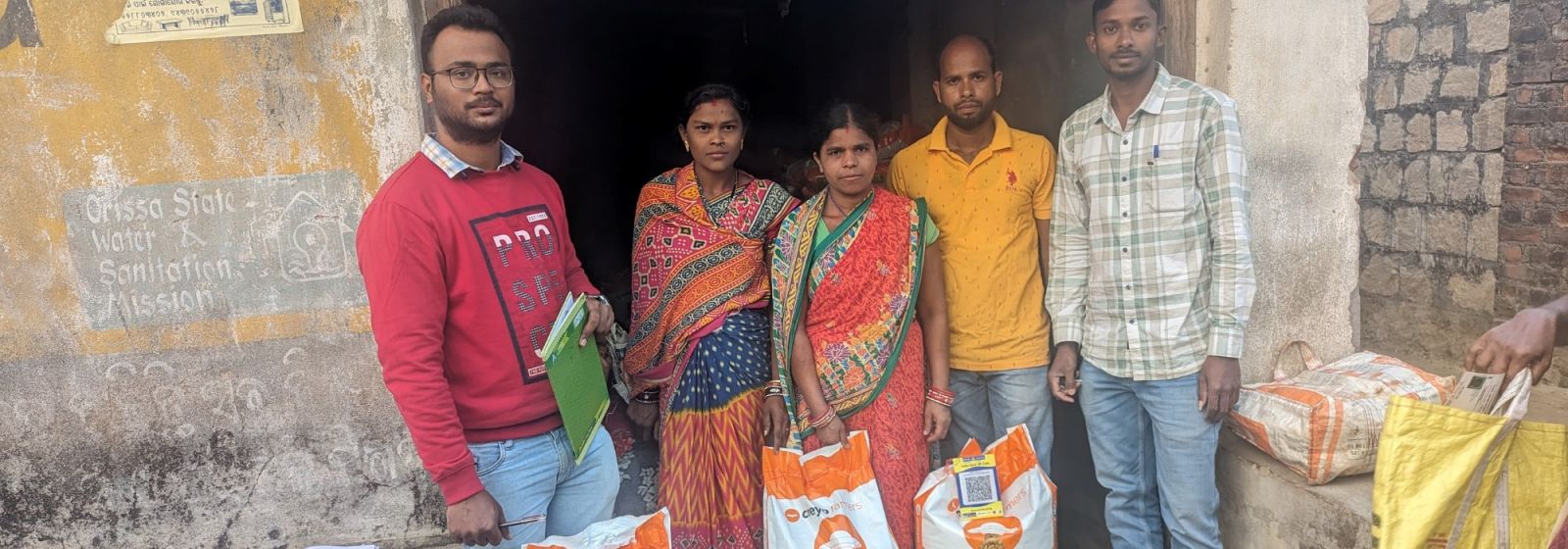March 15, 2024
by Afreen Khan, Ranjitha Puskur, Suchaita Tenneti

Two Farmer Producer Companies (FPC) in Odisha, India aim to further sustain their increased yields and bridge productivity gaps by facilitating and activating women's entrepreneurship in paddy seed production. This blog is a part of IRRI’s 2024 International Women’s Day campaign.
Can seed systems empower women?
Gender is intricately woven into various facets of seed systems. Traditionally, women have held pivotal roles as seed custodians and managers, drawing upon their extensive knowledge of seed systems that are crucial for agricultural sustainability. They have excelled in identifying, preserving, and conserving seeds of varieties suitable for various climatic conditions. Women are actively involved in the various intercultural operations involved in seed production. Evidence shows that seed systems not only tend to reach women but have the potential to “benefit” and “empower” them as seed producers. However, women’s agency does not always translate into the formal seed sector and distinctive initiatives to facilitate their participation in formal seed production are essential. The collaboration between the International Rice Research Institute (IRRI) and the Access Livelihood Foundation (ALF) is an effort in this direction that seeks to give smallholder, women farmers in Odisha the opportunity to engage in paddy seed production.
Seeds of transformation
Nestled within the diverse agro-climatic landscape of Odisha, the districts - Bolangir and Kalahandi stand as a testament to resilience and transformation. Plagued by recurring droughts and famine-like situations, these southwestern districts have turned adversity into pivotal rice production hubs in the state. Once labeled the "land of hunger," Kalahandi is now Odisha's very own "rice bowl," claiming the second position in the state’s rice production.
While they have made rapid strides, the paddy yields in Bolangir and Kalahandi stand at 2,143 kg/ha and 3,296 kg/ha, respectively. These are still low compared to the state average of 3,024.26 kg/ha and the national average of 3,848 kg/ha. This shows that there is more need for dependable seed systems that can help sustain and amplify the continuing increase in paddy yields and bridge productivity gaps.
Addressing seed accessibility challenges
Seeds embody the potential for abundant harvests and resilient crops, forming the very foundation upon which agricultural success rests, as their quality directly influences crop yields. While Bolangir and Kalahandi boast vibrant agricultural ecosystems, a persistent challenge that women and smallholder farmers face is limited access to quality seeds, particularly from the formal sector. This shortfall has left smallholders and women farmers grappling for access to affordable certified seeds, negatively impacting crop yields. This disparity in seed access highlights the pressing need for an inclusive seed system—one that ensures consistent and reliable access to quality seeds for all farmers.
Women in seed production - a win-win strategy
Involving women in formal seed production presents a win-win strategy with far-reaching benefits for agricultural systems and communities. Women engaged in the formal seed sector, ensure that the specific needs of local communities and farmer preferences are not just considered but prioritized. Farmer Producer Companies (FPC) facilitate women's entrepreneurship in seed production by providing managerial skills, infrastructure, and community engagement. Their insights and experiences amplify local voices and expertise, shaping these systems to be more attuned to the unique demands of each community. A triple win emerges as women's leadership in seed production not only benefits women farmers with improved access to quality seeds but also increases incomes and empowerment of women seed producers, ultimately fostering the development of decentralized seed systems.
Empowering women through seed systems
The collaboration between IRRI and the Access Livelihood Foundation (ALF) stemmed from a shared commitment to empowering women in rice-based systems while developing decentralized seed systems to address the constrained access to good quality seed of preferred varieties by smallholder farmers. This collaborative effort was grounded in a comprehensive understanding of the local agricultural and seed market systems and a vision to empower women as catalysts for change. This led to the establishment of two all-women FPCs in the districts of Kalahandi and Loisingha, which provided women with an opportunity to become seed producers.
Established in 2019, the Adarsh Dharmagarh Women Farmers Services Producer Company Limited (ADWFSPCL) currently has a membership of 1,206 small and marginal women farmers. Financially robust, it holds a paid-up share capital of INR 16.15 lakhs (approximately 19,500 USD). Thriving in various sectors such as input procurement and sales, retail grocery services, seed business, agroecology-based farming, and finance, it has developed a notable presence in the farmer-managed paddy seed sector. From 2019 to 2024, it has achieved a cumulative turnover of INR 284 lakhs (approx USD 342,000) and production of 1,251.7 MT of paddy seed. 245 farmers who were formerly engaged in traditional paddy cultivation have now shifted to seed production.
The Loisingha Women Farmer Services Producer Company Limited (LWFSPCL) which was established in 2022, was inspired by Kalahandi's successful model of empowering women in seed production. Learning from both its successes and failures, Loisingha demonstrates a commitment to adapt and progress. Currently, it has 1,240 women shareholders, of which 155 are engaged in paddy seed production. In their first year in 2023, they achieved a turnover of INR 75 lakhs (approx USD 90,000) and a production of 348.77 MT of seeds during Kharif and Rabi. With a paid-up capital of 18.6 lakhs (approx USD 22,400), LWFSPCL is a driving force for women’s empowerment in agriculture and making positive changes in its community.
This is the first of a two-part seeds systems impact series by (project name and their roles in the project i.e. project leads/specialist) Afreen Khan, Ranjitha Puskur, and Suchaita Tenneti. Stay tuned for Part 2 titled “Beyond incomes: What is the true impact of engaging in seed production on women's lives?”